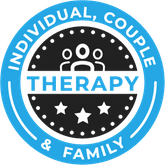PTSD
Post-traumatic stress disorder (PTSD) is an anxiety disorder that affects individuals who have suffered severe traumas. Thoughts of the traumatic events can incite anxiety and even depression for several months or years. Symptoms vary from person to person, but may include:
- Flashbacks
- Nightmares
- Invasive thoughts
- Feeling hyper-vigilant (on edge)
- Insomnia
- Emotionally disengaged, insensitive and distant
- Guilt
- Depression
- Poor boundaries
PTSD can affect both adults and children. It is especially common among individuals who have endured the death of a loved one, victimization, sexual abuse and physical assault, or suffered a near-death experience, such as car accidents and natural disasters. PTSD is also commonly found among military service men and women who have witnessed the fatalities and casualties of war. Specific statistics on the prevalence of PTSD can be found through The Anxiety and Depression Association of America.
Counseling for PTSD
It is important for trauma survivors to seek counseling for PTSD – regardless of how mild or severe symptoms may be. Therapy can help those with PTSD begin processing the traumatic events that occurred in the past, with discussion and confrontation of the stressful and fearful feelings associated with them. Overtime, counseling can alleviate anxiety associated with traumatic events, allowing individuals to move forward with their lives.
Counseling is also important for spouses and family members of people suffering from PTSD. Counseling provides education and support for the loved ones who must endure the changes that PTSD brings – including relationship issues, such as problems with trust and communication.
For more information about PTSD counseling and whether it’s right for you, contact our office.




